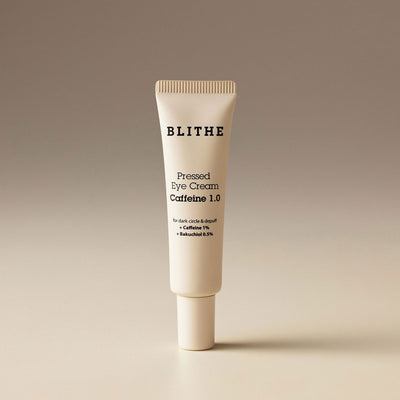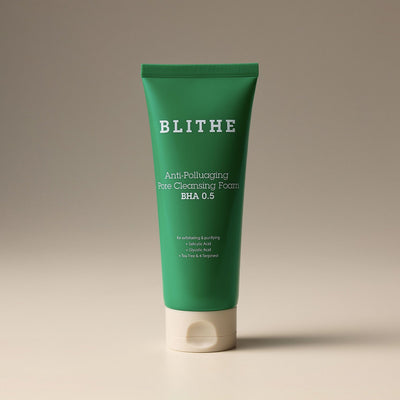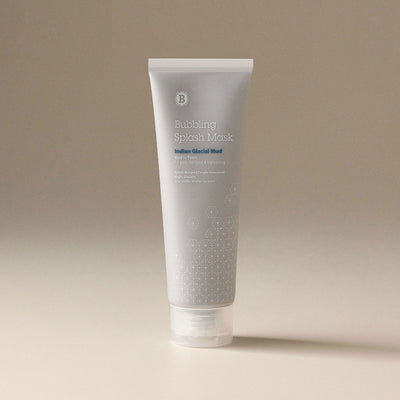Navigating the complexities of how to care for sensitive skin effectively is a challenge for many, underscoring the importance of selecting the right skincare ingredients. Sensitive skin, characterized by its quick reaction to certain products or environmental changes, requires a thoughtful approach to avoid irritation and discomfort. Incorporating key ingredients such as hyaluronic acid can play a crucial role in maintaining the skin's hydration levels and barrier function, making it essential for anyone looking to improve their skin's health and resilience.
The guide that follows delves into the foundational knowledge required to understand sensitive skin, highlights the top ingredients beneficial for soothing and rejuvenating sensitive skin types, and outlines the best practices to enhance skin care routines. It also warns against common ingredients that could potentially harm sensitive skin and emphasizes the importance of consulting a dermatologist for personalized advice. Thus, providing a comprehensive roadmap for individuals seeking to mitigate sensitivity concerns and achieve a healthier, more radiant complexion.

Understanding Sensitive Skin
Defining Sensitive Skin
Sensitive skin occurs due to genetic differences in the skin barrier or severe irritation leading to inflammation. It is often a symptom rather than a disease, manifesting as red, itchy, swollen skin, or dry patches that may crack or bleed. This condition can affect anyone, depending on their exposure to irritants or allergens.
Common Triggers for Sensitivity
Sensitive skin reacts to various triggers that compromise the skin's protective barrier. Common irritants include soaps, beauty products, and environmental factors like heat or sunlight. Specific triggers for conditions like eczema include allergens such as dairy or nuts, while contact dermatitis may be provoked by chemicals in skincare products.
Underlying Conditions
Several skin conditions can exacerbate skin sensitivity, including eczema, rosacea, and allergic contact dermatitis. These conditions lead to symptoms like dryness, redness, and itching. Managing these underlying issues is crucial for alleviating sensitive skin symptoms, highlighting the importance of a tailored skincare routine.
Top Ingredients for Sensitive Skin
Aloe Vera is renowned for its soothing properties, making it ideal for sensitive skin. It not only moisturizes but also reduces inflammation and accelerates healing in conditions like sunburns and minor abrasions. Additionally, its antibacterial qualities help prevent acne while promoting faster healing of wounds.
Green Tea, rich in antioxidants and polyphenols, offers anti-inflammatory benefits that can help calm irritated skin and reduce redness. Its components, such as EGCG, protect the skin from environmental damage and have been shown to improve skin conditions like acne and eczema by reducing sebum production and soothing inflammation.

Hyaluronic Acid is a powerhouse for hydration, capable of holding up to 1000 times its weight in water. This makes it essential for maintaining skin's moisture barrier, which is crucial for sensitive skin prone to dryness and irritation. It also aids in skin repair and regeneration, enhancing skin texture and resilience.
Glycerin, a gentle humectant, attracts moisture to the skin, which is beneficial for both hydrating and maintaining the skin's barrier function. It is particularly effective in environments with low humidity, pulling moisture from deeper layers of the skin to alleviate dryness without causing irritation.
Ceramides are fundamental in strengthening the skin's barrier and retaining moisture. They help protect the skin from environmental aggressors and prevent moisture loss, which is vital for sensitive skin types. Using products enriched with ceramides can replenish natural lipid barriers and enhance skin smoothness and elasticity.
Best Practices for Treating Sensitive Skin
To manage sensitive skin effectively, adhering to a gentle skin care routine is crucial. Use a mild cleanser suitable for sensitive skin and avoid harsh soaps that can dry out the skin. It's recommended to wash the skin gently using hands rather than abrasive materials like washcloths. After cleansing, pat the skin almost dry with a towel, avoiding vigorous rubbing, and apply a hypoallergenic moisturizer within three minutes to lock in moisture.
Avoiding Hot Water
to dryness and irritation. The National Eczema Association advises bathing or showering in lukewarm water and keeping the duration to no more than 15 minutes. After bathing, it's beneficial to apply a moisturizer to damp skin to help retain hydration.
Using Soft Fabrics
Choosing the right clothing is also essential for sensitive skin care. Fabrics like organic cotton, bamboo, and silk are recommended due to their soft, hypoallergenic properties that prevent irritation. These materials are breathable and help in maintaining skin comfort and preventing flare-ups.
Avoid synthetic fibers and rough materials like wool, which can aggravate sensitive skin. Additionally, opt for clothing without harsh dyes and chemicals to reduce the risk of skin reactions.

Ingredients to Avoid
When caring for sensitive skin, avoiding certain ingredients is as crucial as choosing the right ones. Among the most common irritants are sulfates, such as sodium lauryl sulfate (SLS) and sodium laureth sulfate (SLES), which are found in many cleansers and can strip the skin of natural oils, leading to irritation. Petroleum-based ingredients, often listed as petrolatum, can clog pores and exacerbate skin issues.
Fragrances
Fragrances, whether synthetic or natural, are major triggers for sensitive skin. They can cause reactions ranging from mild irritation to severe allergic responses. Opting for fragrance-free products is advisable, as even products labeled "unscented" may contain masking fragrances that can still irritate the skin.
Harsh Chemicals
Harsh chemicals to avoid include alpha hydroxy acids (AHA), glycolic acid, and lactic acid, which can be too abrasive for delicate skin. Benzoyl peroxide and alcohols like ethanol are other culprits that can overly dry and irritate sensitive skin. Instead, choosing products with gentle and hydrating ingredients like hyaluronic acid can help maintain the skin’s moisture barrier without causing adverse reactions.

Consulting a Dermatologist
When managing sensitive skin, consulting a dermatologist is crucial for accurate diagnosis and effective treatment. Dermatologists specialize in identifying underlying skin conditions such as eczema, rosacea, or contact dermatitis through examinations and patch tests to detect allergies. They provide tailored advice on avoiding irritants and selecting suitable skincare and household products.
When to See a Doctor
Immediate medical attention is necessary if symptoms are severe, including persistent itching, widespread rashes, or signs of infection like pus or fever. Dermatologists also recommend seeking help if home treatments are ineffective or if symptoms suddenly worsen, potentially indicating an allergic reaction or other serious conditions.
Prescription Treatments
For chronic or severe skin issues, dermatologists may prescribe medications. Topical treatments like corticosteroids or calcineurin inhibitors help reduce inflammation and manage symptoms of eczema and dermatitis. In cases where topical treatments are insufficient, oral medications or injectable biologics may be necessary to control severe symptoms effectively. Always follow the dermatologist's guidance on medication usage to avoid side effects and achieve the best outcomes.
Through this comprehensive guide, we've explored the delicate terrain of caring for sensitive skin, underscoring the pivotal role of selecting the right skincare ingredients to mitigate irritation and bolster skin health. Key components like hyaluronic acid, aloe vera, and ceramides emerge as champions in maintaining hydration and reinforcing the skin's barrier, offering solace to those battling sensitivity. Moreover, understanding the triggers and underlying conditions that exacerbate skin sensitivity is crucial for tailoring a skincare regime that not only soothes but actively works to heal and protect sensitive skin.
Encapsulating the essence of this journey towards healthier, radiant skin, it becomes evident that mindful skincare practices, coupled with an informed selection of skin-friendly ingredients, can dramatically transform the experience of those with sensitive skin.
Consulting with a dermatologist remains a cornerstone advice for anyone navigating the complexities of skin sensitivities, ensuring personalized care that addresses specific needs. As we close this guide, remember that the path to achieving a serene, comfortable skin complexion lies in embracing gentle, nurturing skincare ingredients and practices, steering clear of harsh irritants, and paying heed to the wisdom of professional dermatological advice.









Leave a comment